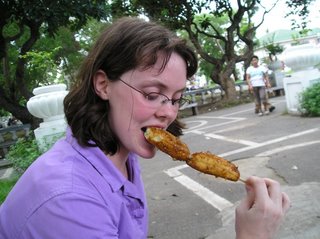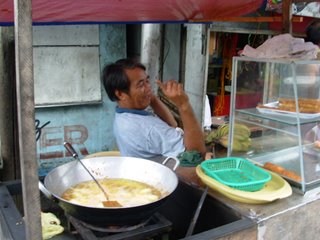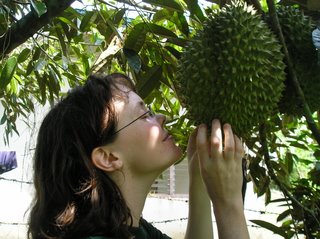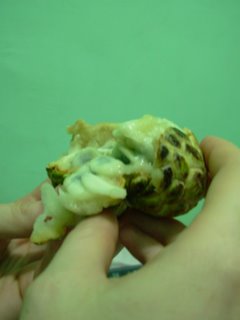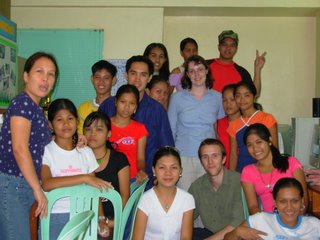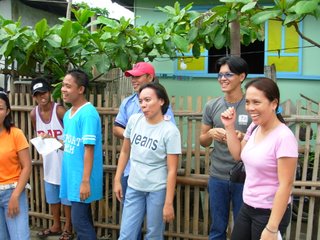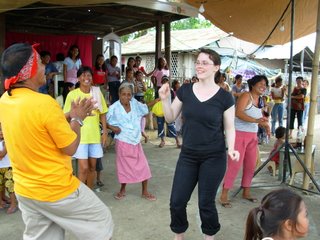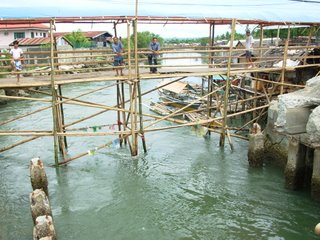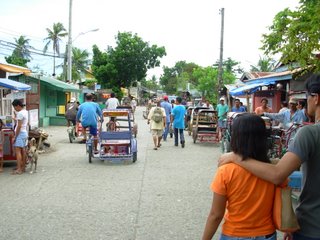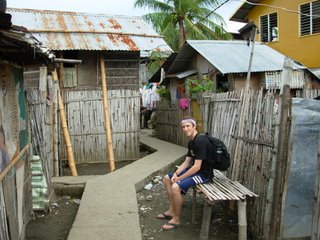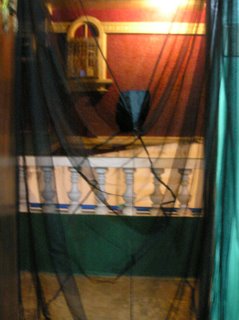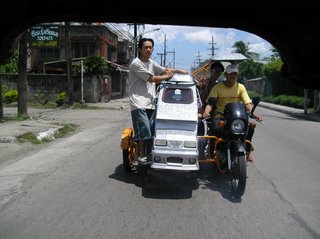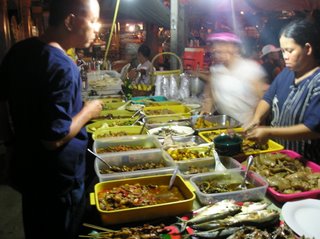So where exactly is Megan?So a bit of an update on where I am now – I left Iloilo with Lieka, a trainer from a center in Negros Occidental and my SCALA volunteer partner for the set-up, to travel to Koronadal (also known as Marbel) in South Cotabato province. And I guess I should describe what a SCALA Volunteer does! Two SCALA volunteers travel to a city or province capitol once the local government unit (LGUs, usually either the city or provincial government) has been validated to receive SCALA. We stay for about 4 to 6 weeks. We orient the team who will manage the centre (the centre head, the trainers, the youth social worker, the local head of the Department for Social Welfare and Development and the regional focal person for the SCALA project), we train the trainers in the curriculum and we provide technical assistance. (For example, we set-up the computers donated by EWB and explain what will happen if you plug a monitor into the wrong voltage plug. Sometimes we demonstrate that, although we try not to!)
So that’s what I was headed to Koronadal to do. Koronadal is a pretty cool city – fairly small, and surrounded by a ring of low, green mountains. (Including a volcano – how cool is that? Although it has apparently been inactive for hundreds of years, which on the whole is probably a good thing). There’s a much bigger Muslim population in Koronadal than in other cities I’ve been to (it’s quite near to the Autonomous Region of Muslim Mindanao). There’s also some indigenous groups living nearby, like the T’boli, and the city was gearing up to celebrate it’s week-long Tinalak festival when we arrived. (Tinalak is a type of traditional T’boli clothe).
Unfortunately, I didn’t get to stay long enough to see the festival. During our first orientation meetings with the project team, Lieka and I found out the team was a lot less ready for the set-up than usual. For one thing, for a set-up to happen they need to have an approved budget and signed proposal – they had a signed proposal months ago, but then decided they could set-up on a smaller budget. So we had thought they could just revise the already signed proposal for a lesser amount, but it turns out they need to pass it through their legistlative body for approval again and the funds can’t be released until the next budget in August anyway. So needless to say there were some shocked, incredulous faces when Lieka and I explained that the goal of a set-up was for them to be ready to start training their first batch of youth in 4 to 6 weeeks!
So since they wouldn’t have an available budget or a signed proposal before August it was decided to postpone the set-up until the fall. When I talked to my mom about this she asked why we couldn’t just stay and train the trainers anyway, for the sake of helping them? It’s a good question – were we being too inflexible, too focused on the rules rather than on giving the knowledge we had or helping people? I don’t think so, but on the other hand that’s exactly what the center staff were asking us to do. There were a couple of reasons why the decision was made to postpone – the biggest bottleneck for setting up centers is the availability of volunteers. If we had stayed to train the trainers, Lieka probably wouldn’t have been available for mobilization again (her center is not too keen on giving up their trainer more than they have to!) and we still would’ve had to send volunteers back to help the Koronadal center through the other parts of set-up. I could have stayed on my own to do some training, but would that have given the impression that Lieka wasn’t really necessary as long as there was a Canadian around? Also, most of the LGUs already think that all the SCALA volunteers do is train trainers, which is not something we want to reinforce – us orienting and guiding all the members of the center team I think can help improve the center and make it stronger. But if the set-up that’s now scheduled for October doesn’t happen and that was our one chance to teach the trainers the curriculum and thus give that center any chance of being set-up? Then I think these arguments lose some of their strength. So I’m hoping it goes through.
At any rate, Lieka left after a week and a half in Koronadal and I left after 2 weeks, once the computers had arrived and been put into storage. On the plus side, the centre staff (as well as the region’s DSWD director and even the governor – we had a LOT of meetings in those 1 ½ weeks!) seemed understanding of why we were going to leave. I think some of them were even relieved to have more time to prepare. It was a good experience in cross-cultural communication and the Filipino government processes too. To me, “the governor just has to sign the proposal” meant we’d have it in a day. To the people saying that, who knew the processes, there was an implicit “once it’s been read in the legislature 3 times to give her permission to sign.” And it turns out that “the venue is ready” can mean “there are no more renovations to be done on the venue, although the accounting office won’t move out until mid-July” :) It was also nice to have some practice with a set-up – it was a challenge not to take-over in meetings when Lieka would outright ask me to. (I don’t think she feels very comfortable talking in groups). But she’s the one who will be doing this more than me and it was good to realize that I have to get better at encouraging my partner or trying to make our contributions more even so that she gets practice too.
On the other hand – well apart from the fact that it sucks that the center couldn’t get started, I was pretty disappointed that I wouldn’t be able to stay in one place for a while. Thus far the 2 weeks with a family in Koronadal has been the longest I’ve lived in one place, and that’s been a challenge. For one, it’s hard to integrate into a workplace or a family when I’m there for so short a time – I make new relationships with people but I don’t really have time to develop them or sustain them. And it’s kind of exhausting – when I get to a new family or meet new people at work I want to put in more effort at first to get to know them. So I spend time with them over taking personal time for emails or things like that – but when it’s a string of new meetings I’ve found it difficult to carve out my own space. And being hosted adds to that – at first in a place I don’t really know where things are, or how things are done, and people are nice enough to offer to accompany me everywhere. I definitely feel like I’ve become a lot more familiar and integrated into the Philippines as a whole – I can definitely see the difference in how used to the things that are common throughout the country-food, the way of eating, the way of greeting people, even tagalog to a certain extent – I am, but I haven’t really become familiar with one place or one group of people yet.
So yes, biggest personal challenge here by far, I’d say. But I’ll hopefully be going to do another set-up in Bukidnon province at the end of July and that will likely be with on of the trainers from Iloilo who I know fairly well, which is nice. And for the meantime I’ll be working & living with Sara in Manila and there should be some interesting work for the next couple of weeks here. We’ll see how it goes :)




